Cloves, the aromatic flower buds derived from the Syzygium aromaticum tree, have been valued for their medicinal properties since ancient times. Traditionally incorporated into a variety of cultural practices and cuisines, cloves offer a distinct flavor and a number of health benefits. This spice is rich in antioxidants, which play a crucial role in protecting the body from oxidative stress and inflammation.
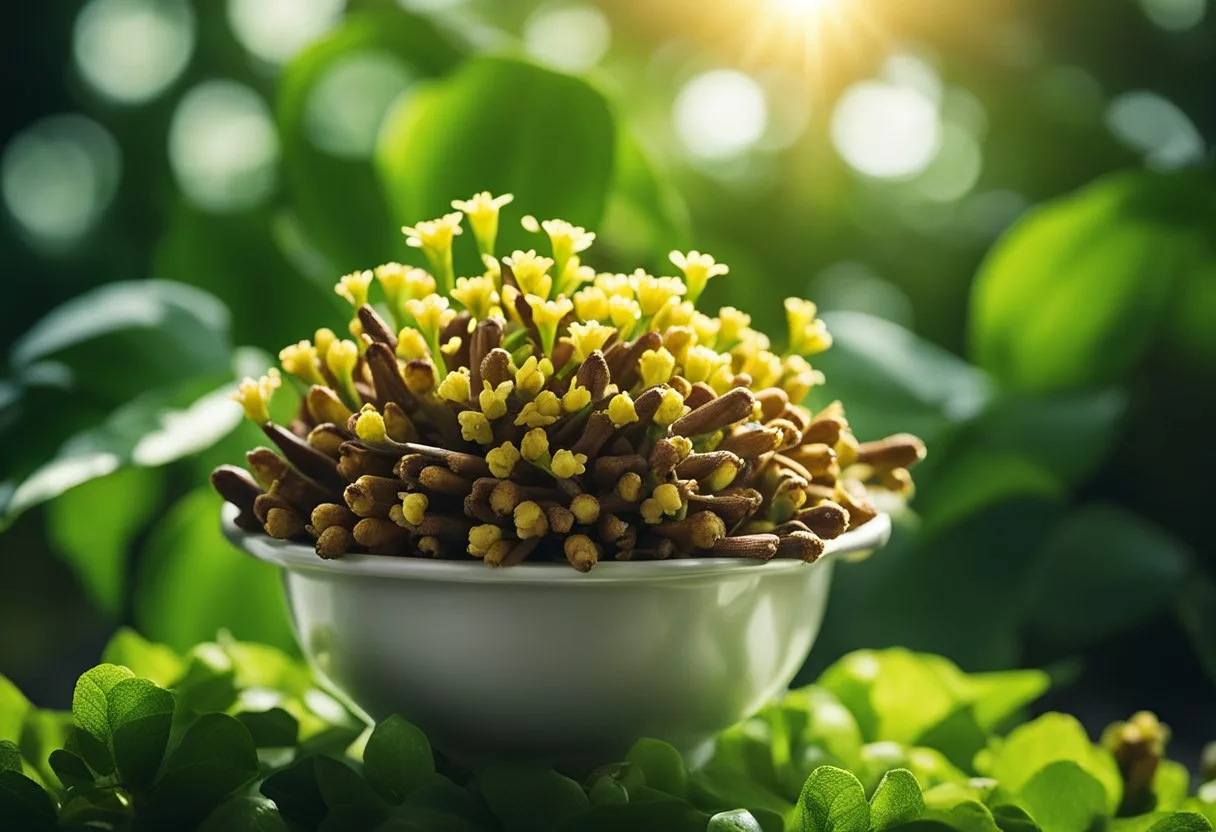
Studies suggest that the compounds found in cloves, such as eugenol, have potential health-promoting effects. For example, eugenol has been recognized for its ability to ease toothache and boost oral health. Cloves are also associated with better digestion, improved liver function, and may even help regulate blood sugar levels. Despite their benefits, it’s important to use cloves in moderation, as they can be potent and may cause side effects in some individuals.
Key Takeaways
- Cloves are a spice with significant antioxidant properties that contribute to their health benefits.
- They may support oral health, digestion, liver function, and blood sugar levels.
- While cloves have various uses, both culinary and medicinal, they should be consumed in moderation.
Historical and Cultural Significance of Cloves
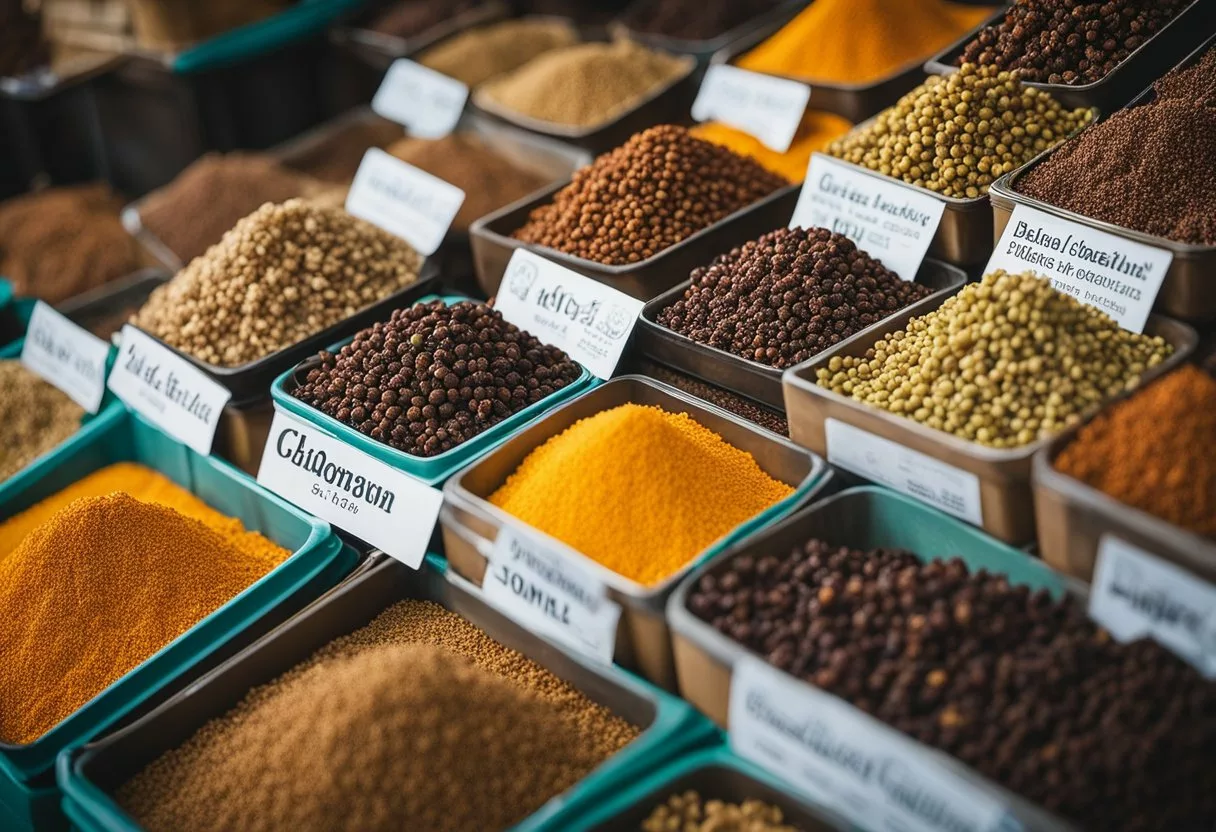
Cloves, derived from the tree Syzygium aromaticum, are more than just a spice; their historical roots and cultural uses extend deeply into medicinal practices and culinary traditions around the world.
Origin and Traditional Uses
Syzygium aromaticum, known commonly as the clove tree, is indigenous to the Indonesian Moluccas or Spice Islands, a region historically renowned for its wealth of spices. Its use in medicine is storied and expansive, featuring prominently in Indian Ayurvedic medicine and Traditional Chinese Medicine (TCM). In these traditions, cloves have been used for their believed analgesic and anti-inflammatory properties. In various cultures, cloves have been applied to address issues ranging from dental pain to digestive problems.
- Medicinal contexts where cloves are used:
- Traditional Indian medicine (Ayurveda): dental care, gastrointestinal support.
- Traditional Chinese medicine: pain relief, as an antibacterial agent.
Cloves in Culinary Traditions
Cloves boast a distinctive, intense aroma and a warm, pungent taste that integrates well into an array of dishes and beverages. They are a staple in baked goods and desserts, particularly in European and North American holiday recipes. Drinks such as mulled wine synonymous with festive seasons, rely on cloves for their signature spicy warmth. In Indian cuisine, cloves are a key element in flavorful curries and chai, enriching the aromatic profile of these beloved dishes.
- Culinary uses of cloves:
- Baked goods: incorporated in spice blends for cookies, cakes, and bread.
- Meats: used as a seasoning in dishes from roasts to stews.
- Beverages: an essential spice in mulled wine and masala chai.
- Desserts: provides an aromatic kick to sweet dishes and syrups.
Nutritional Composition of Cloves
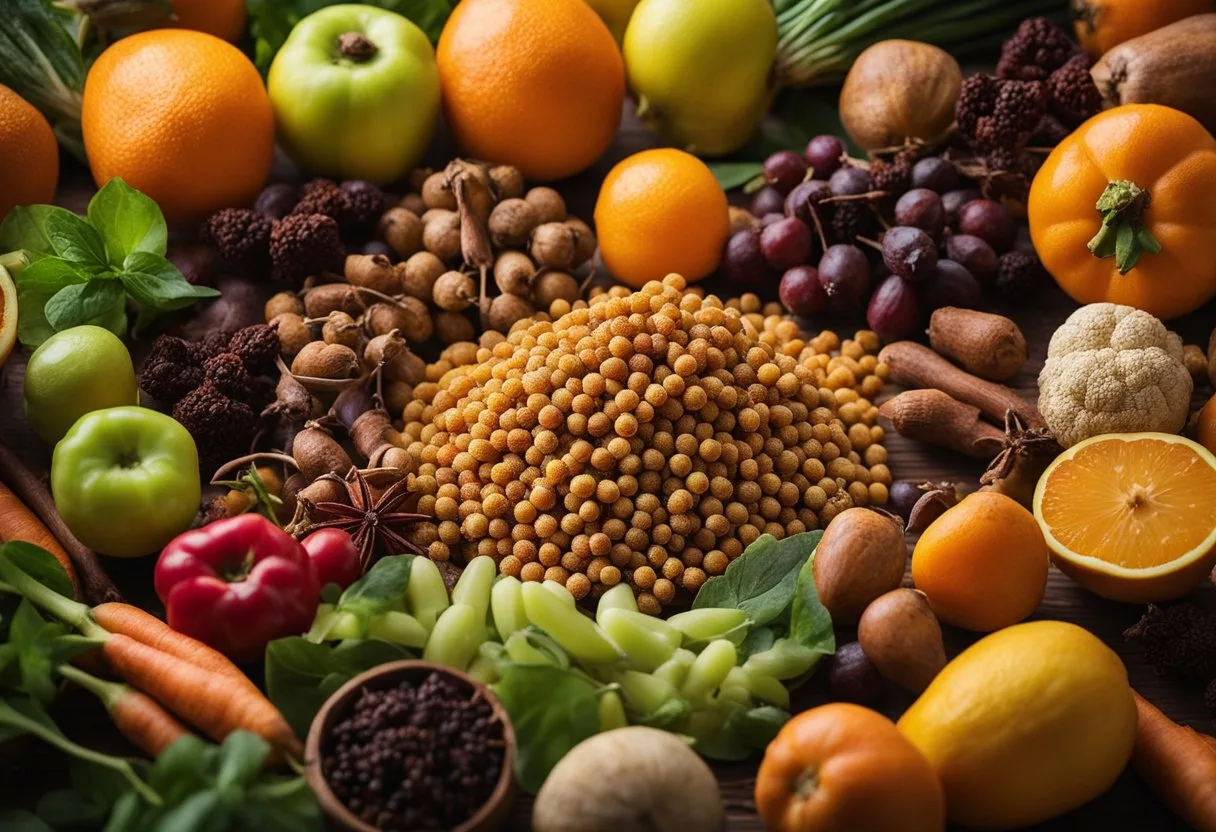
Cloves are a rich source of various nutrients and bioactive compounds. They boast a notable content of fiber, vitamins, and minerals, alongside an abundance of phytochemicals known for their antioxidant properties.
Vitamins and Minerals in Cloves
Cloves contain a plethora of essential minerals and vitamins. A single teaspoon of ground cloves offers measurable amounts of the following:
- Fiber: Approximately 1 gram, contributing to digestive health.
- Manganese: Cloves are an excellent source of manganese, necessary for bone development and wound healing.
- Vitamin K: Important for blood clotting and bone health.
In addition to these, cloves also provide trace amounts of potassium, contributing to muscle control and electrolyte balance.
Phytochemicals and Antioxidants
The significance of cloves in the context of phytochemicals is largely due to eugenol, an essential oil constituent. Eugenol has been identified to offer numerous health benefits due to its antioxidant and antimicrobial activities.
Cloves also contain other potent antioxidants, which can help in protecting the body against oxidative stress:
- Eugenol Acetate
- Gallic Acid
- Beta-carotene
These compounds play a role in various protective functions within the body, including the management of inflammatory processes and support for the immune system.
Major Health Benefits of Cloves
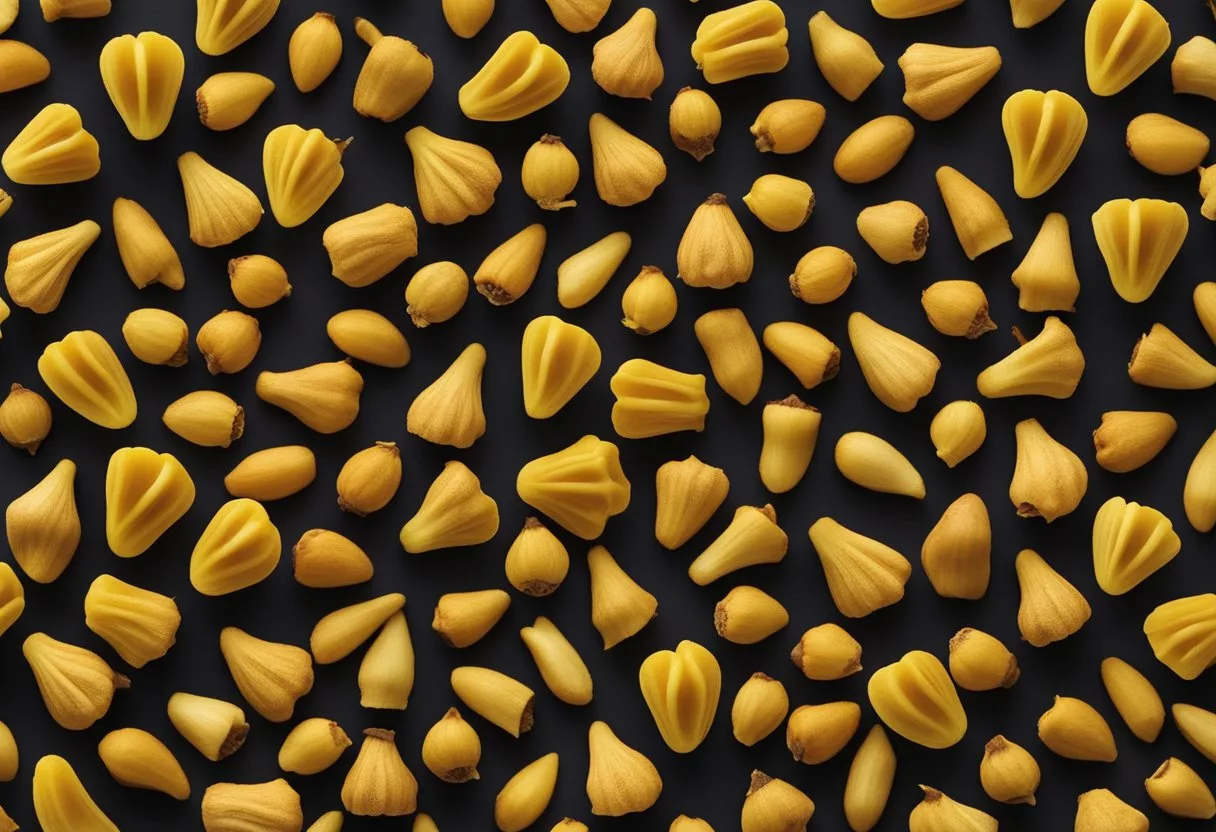
Cloves, potent in flavor and packed with health-promoting compounds, offer a myriad of benefits when included in regular diets, particularly due to their high concentrations of eugenol and other antioxidants.
Anti-Inflammatory and Antibacterial Effects
Cloves have significant anti-inflammatory properties and antibacterial capabilities, primarily attributed to eugenol, an essential oil. Eugenol helps in reducing inflammation and combatting various strains of bacteria, making clove oil a supportive ally in treating infections and enhancing immune health.
Blood Sugar Control
Research suggests that compounds in cloves can aid in blood sugar control. Regular consumption might help stabilize blood sugar levels, which is particularly beneficial for individuals managing diabetes or pre-diabetic conditions. This effect is due to the presence of certain compounds that mimic insulin’s action and enhance its function.
Oral Health Promotion
The use of cloves is often mentioned in the context of oral health. Their antibacterial effects help reduce mouth bacteria, which, in turn, can minimize dental plaque, cavities, and gum disease. Clove oil, applied topically, has been traditionally used to ease toothaches and gingivitis.
Liver Protection and Digestive Health
Cloves contain beneficial substances that may offer protection against liver damage while supporting digestive health. Their antioxidant content is crucial for neutralizing free radicals, potentially preventing the oxidative stress that contributes to liver disease.
Cancer Prevention and Bone Health
Preliminary studies indicate that the antioxidants in cloves may play a role in cancer prevention. Cloves are also a good source of manganese, a mineral that is essential for bone health and helps in the formation of bone tissue and blood clotting mechanisms, potentially reducing the risk of osteoporosis.
Culinary Uses and Recipes
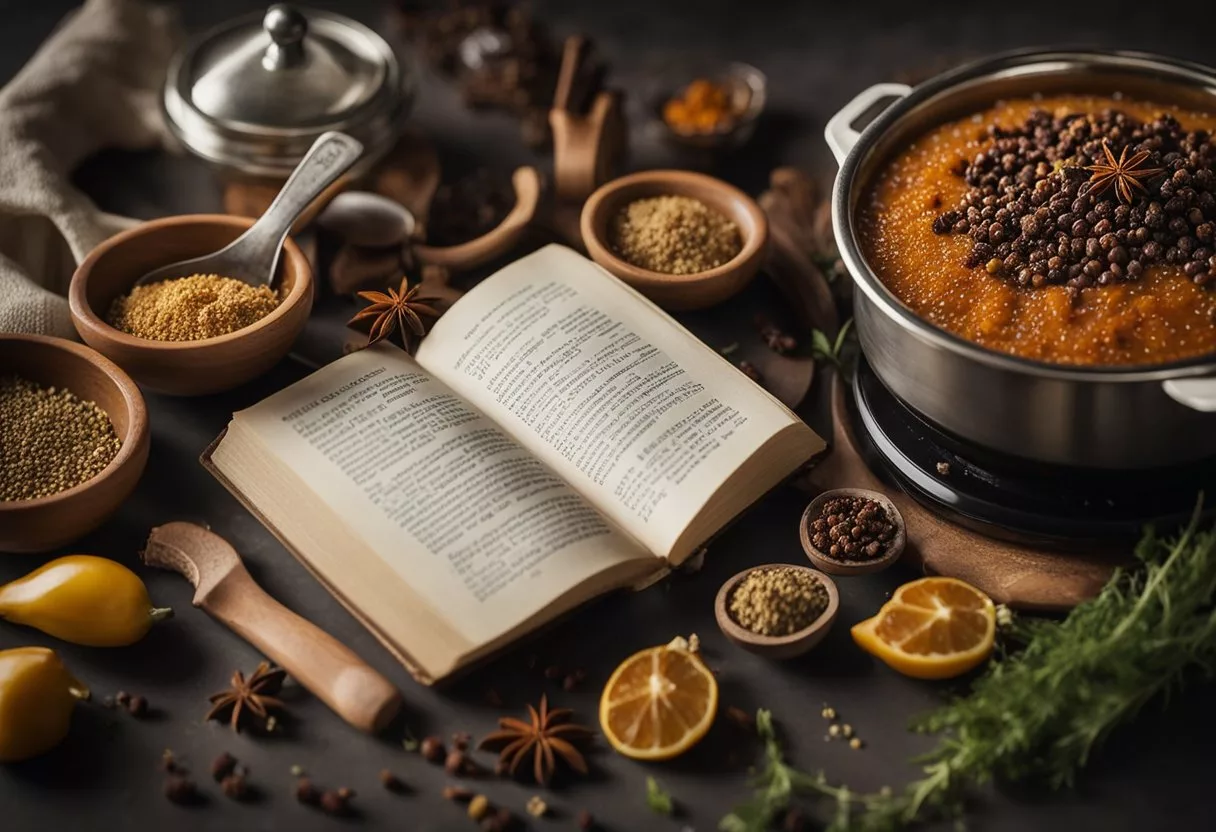
Cloves, the dried flower buds from the Syzygium aromaticum evergreen tree, are a pungent and aromatic spice crucial in various culinary applications, from spicing up savory dishes to enhancing the flavor profile of desserts and beverages.
Incorporating Cloves in Cooking
Cloves can be utilized whole or in ground form, with ground cloves typically preferred for a more subtle and evenly distributed flavor. They are a staple spice in garam masala and pumpkin pie spice, which define the essence of numerous baked goods and desserts. Here are specific ways to use cloves in cooking:
- Meat Dishes: Insert whole cloves into hams or pork roasts before cooking to infuse a deep, spicy flavor.
- Desserts: Pair ground cloves with cinnamon and sage for a robust flavor in apple pies and gingerbread.
Cloves in Beverage Preparation
Cloves work exceptionally well in beverages; they are often key in creating aromatic drinks that are both satisfying to the palate and the senses.
- Clove Tea: Steep whole cloves in boiling water for a warm, soothing tea believed to aid digestion and combat food poisoning.
- Mulled Wine: Add cloves to red wine with citrus peel and other spices, and simmer to prepare a festive mulled wine perfect for holiday gatherings.
- Clove Water: Infuse cold water with cloves and other spices for a refreshing and subtly spicy drink.
The versatility of cloves in cooking and beverage preparation makes them an indispensable spice for both adventurous and traditional palates.
Potential Risks and Side Effects

While cloves offer various health benefits, it is crucial to be aware of their potential risks and side effects, particularly when consumed in large amounts or in specific circumstances.
Proper Dosage and Toxicity
It is advised that individuals consume cloves in amounts typically found in food. Excessive intake of cloves can be toxic due to the presence of eugenol, a compound that can cause liver damage and other health issues when ingested in large doses. There is no established safe dosage for the use of cloves as a supplement, but it is imperative that one does not exceed the amount used as a spice in cooking. Cases of toxicity have been reported in individuals who consumed too much oil of cloves.
Children, pregnant, and breastfeeding women should use cloves cautiously and consult with a healthcare provider before using clove supplements, as the potential effects on these populations are not well-studied.
Interactions with Medications and Conditions
Cloves can interact with certain medications and medical conditions, necessitating caution and sometimes medical supervision based on an individual’s health status. Here are several concerns outlined:
- Bleeding disorders: Cloves have anticoagulant properties, which might increase the risk of bleeding. Patients with bleeding disorders or those taking blood-thinning medications should be particularly cautious.
- Surgery: Due to their effect on blood clotting, cloves might increase the risk of bleeding during or after surgery. It is recommended to stop using cloves at least two weeks before any planned surgery.
- Liver health: High doses of cloves can affect liver function, especially in individuals with pre-existing liver disease.
- Medications: Those taking medications should be mindful of potential interactions. Cloves can influence how drugs are processed in the body, especially drugs metabolized by the liver.
As with any supplement, one should consult with a healthcare provider before adding cloves to their regimen, to ensure safety and proper use in light of individual health conditions and medication use.
Home Remedies and Traditional Medicine
Cloves have a longstanding history in holistic approaches to health care, providing relief for various conditions in both Ayurvedic and Traditional Chinese Medicine. They are renowned for anti-inflammatory and antimicrobial benefits, which make them valuable in home remedies and alternative therapies.
Treating Minor Ailments with Cloves
In the context of Ayurvedic medicine, cloves are considered a potent remedy for addressing gum disease and promoting oral health. The antimicrobial properties of the spice make it an excellent addition to homemade mouthwashes, targeting oral pathogens. To alleviate toothaches or sore gums, applying a small amount of clove oil directly to the affected area can serve as an analgesic due to its anti-inflammatory properties.
- Clove Oil Application:
- Direct application can reduce pain and swelling.
Additionally, the use of clove tea is a comforting remedy for respiratory issues, with its antiviral qualities aiding in the relief of cold symptoms.
Cloves in Alternative Therapies
Both Traditional Chinese Medicine and Ayurveda incorporate cloves into treatment regimens, often relying on their warming and soothing characteristics. For instance, in these traditional practices, clove tea is not only enjoyed for its rich flavor but also for its ability to improve digestion and enhance metabolism.
- Clove Tea Benefits:
- Assists with digestion
- Enhances metabolic functions
Clove oil, with its concentrated form of the active compounds found in whole cloves, is utilized in these practices for its therapeutic properties. The oil is mixed into massage oils to exploit its anti-inflammatory benefits, serving as a natural pain reliever for muscular discomfort and arthritis.
Frequently Asked Questions
Cloves, known for their aromatic qualities, also come packed with notable health benefits ranging from nutritional contributions to medicinal properties. This section answers common inquiries about the applications and effects of cloves on health.
What are the top health benefits of consuming cloves?
Cloves are a rich source of antioxidants which aid in fighting free radicals and can contribute to overall health by reducing oxidative stress. They also have antiseptic properties, helpful in combating oral infections and managing toothache.
What potential side effects might women experience from consuming cloves?
Some women may experience an allergic reaction to cloves. Overconsumption can lead to digestive issues or interfere with blood clotting due to their strong chemical compounds such as eugenol.
How might clove water consumption benefit one’s health?
Drinking clove-infused water is said to aid in digestion, soothe throat irritation, and may even contribute to better metabolic health as part of a balanced diet and healthy lifestyle.
Can cloves play a role in preventing or treating certain diseases?
The eugenol found in cloves exhibits anti-inflammatory properties which can be beneficial in managing conditions such as arthritis. Additionally, cloves have been linked to blood sugar control, which may assist in the prevention and treatment of diabetes.
What are the best ways to incorporate cloves into a daily diet?
Introducing cloves into the diet can be as simple as adding ground cloves to baked goods, sprinkling them onto oatmeal, or steeping whole cloves for a warming tea. They blend well with savory and sweet dishes alike.
Are there specific health advantages of consuming clove water for females?
Clove water is suggested to have antispasmodic effects that might be advantageous for females experiencing menstrual pain. However, this should be approached with moderation and awareness of individual health conditions.